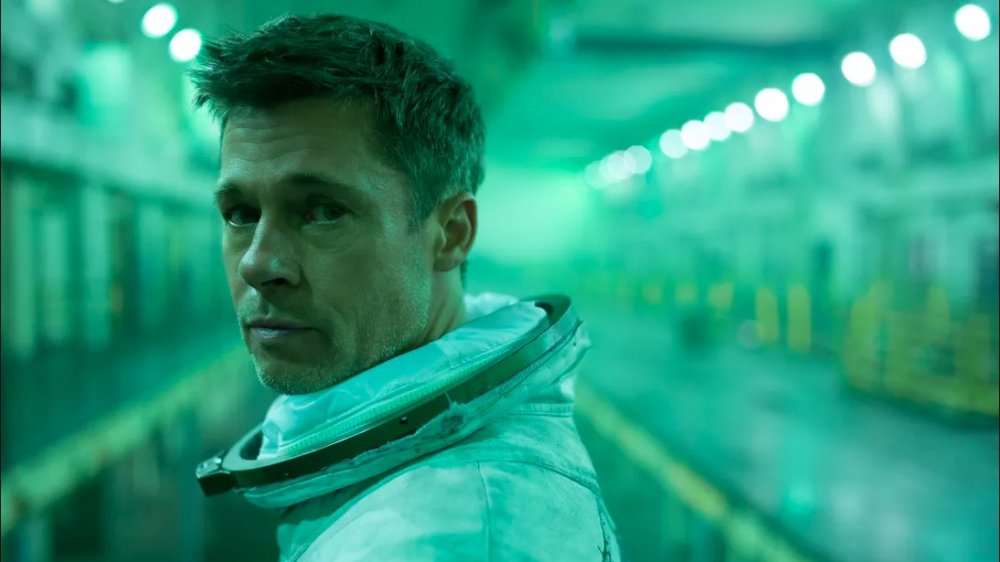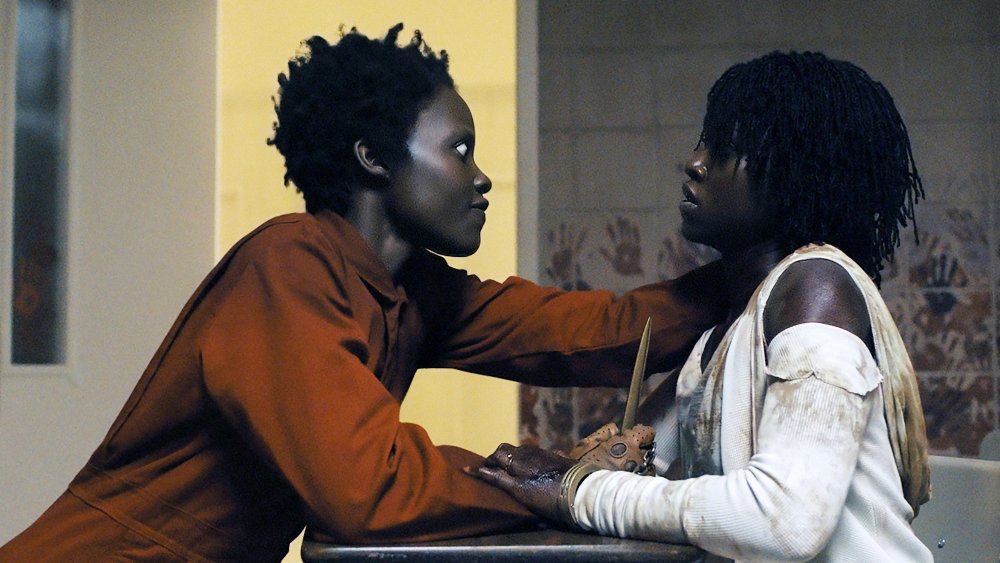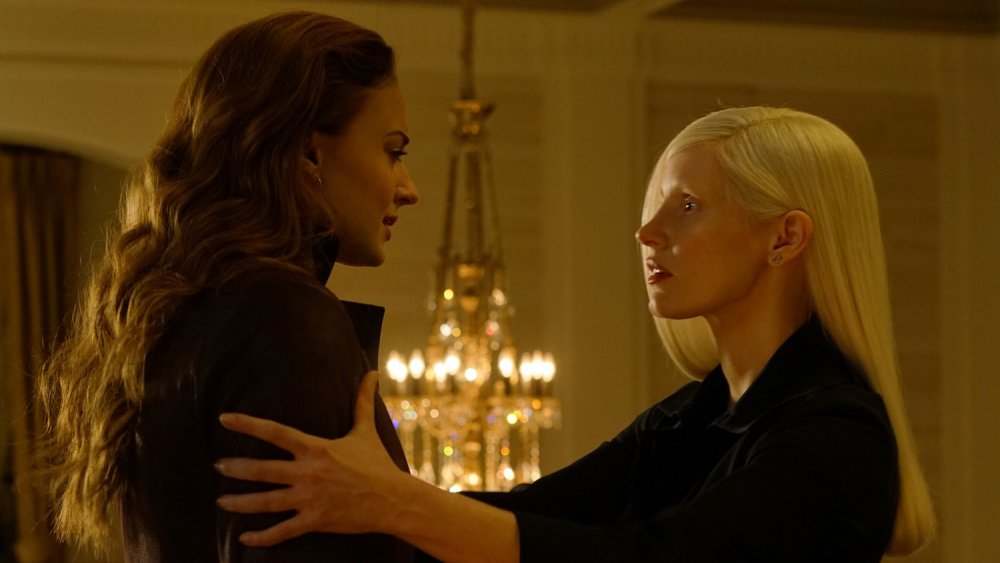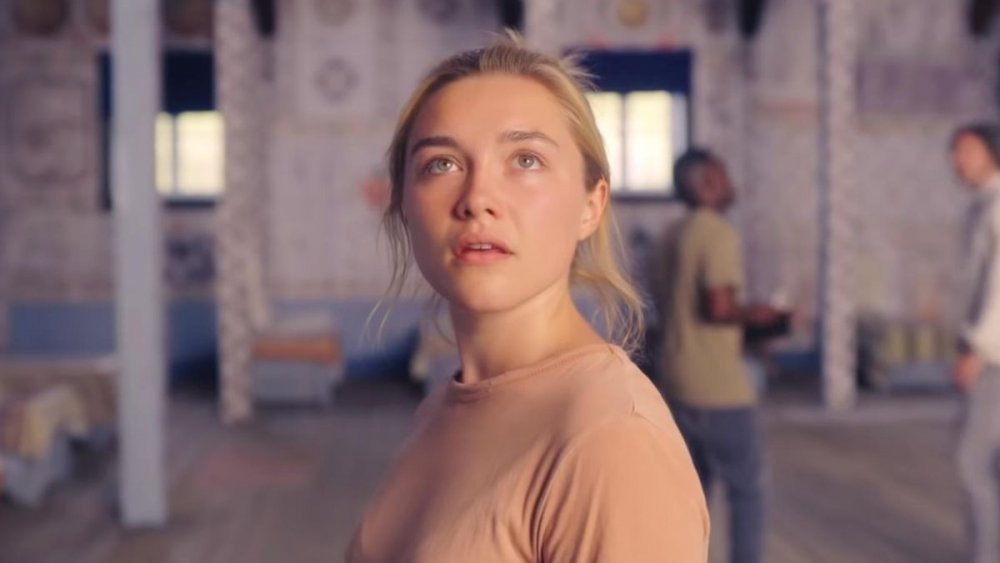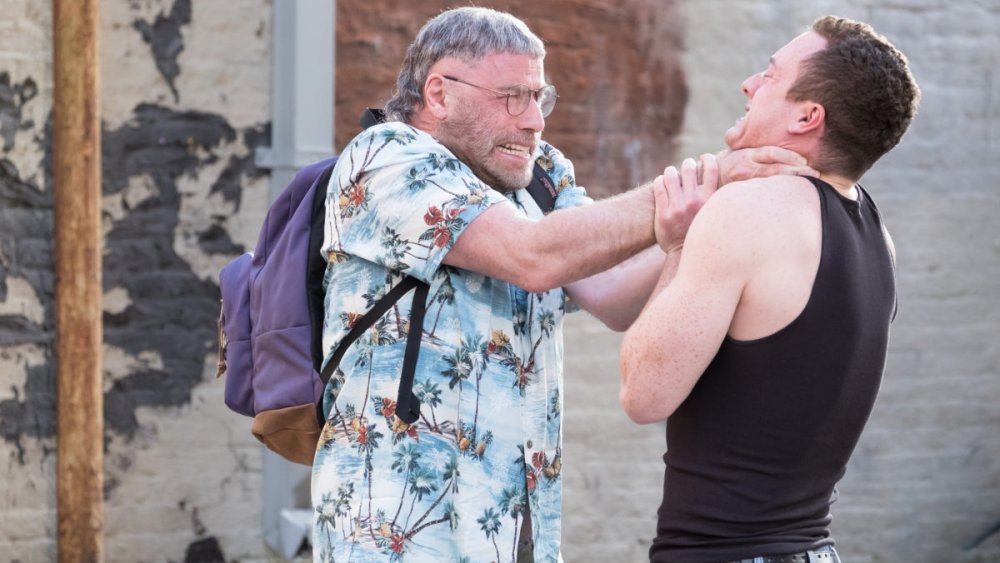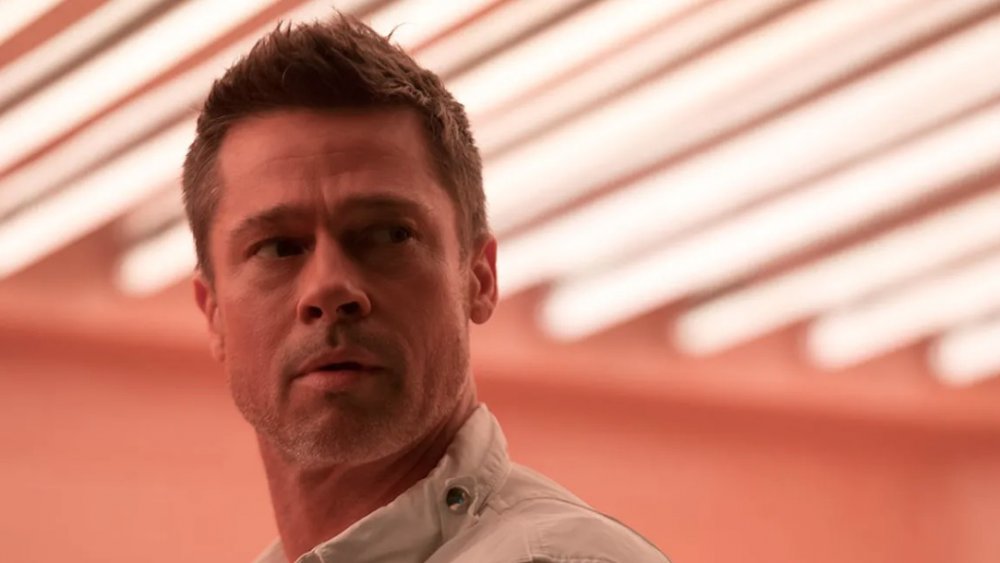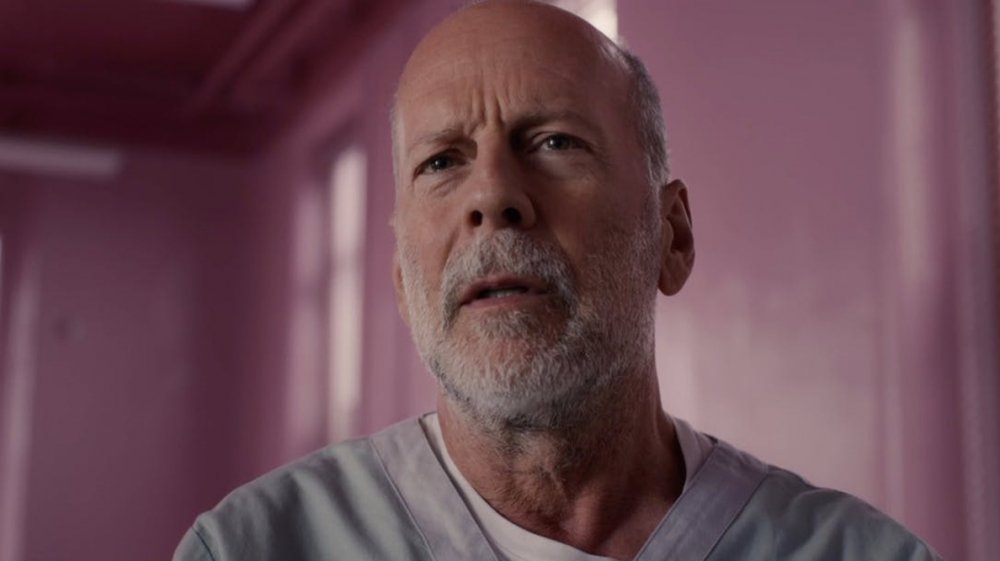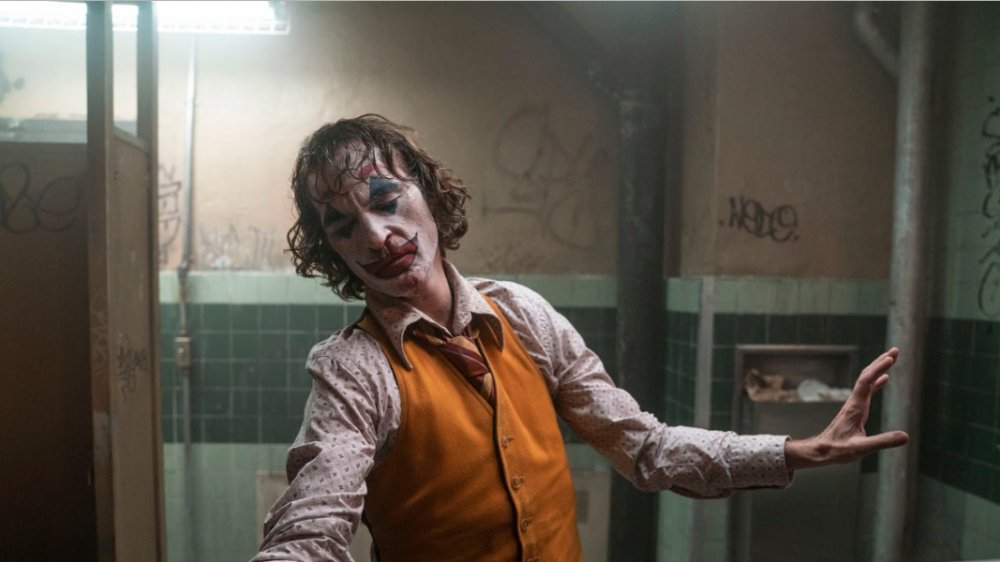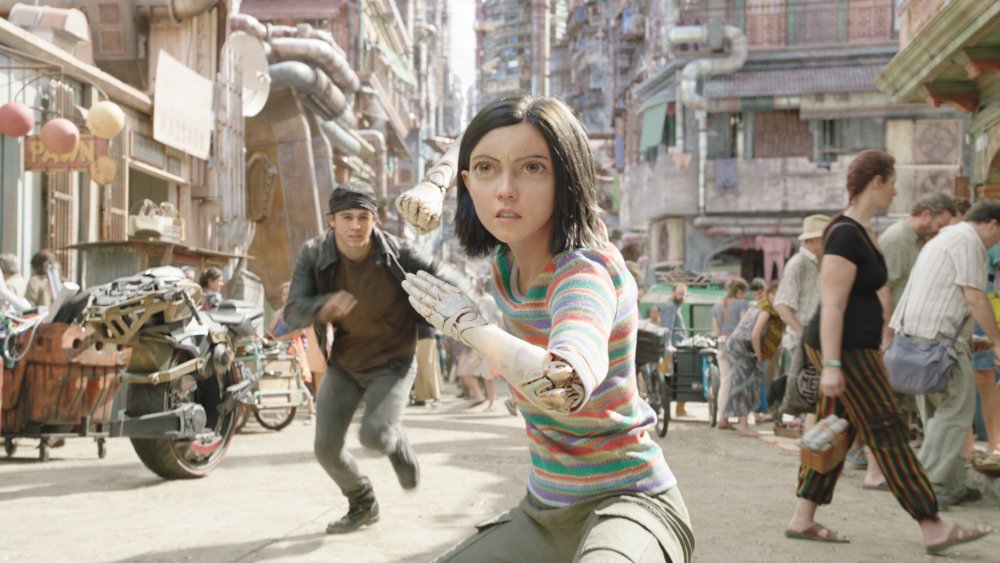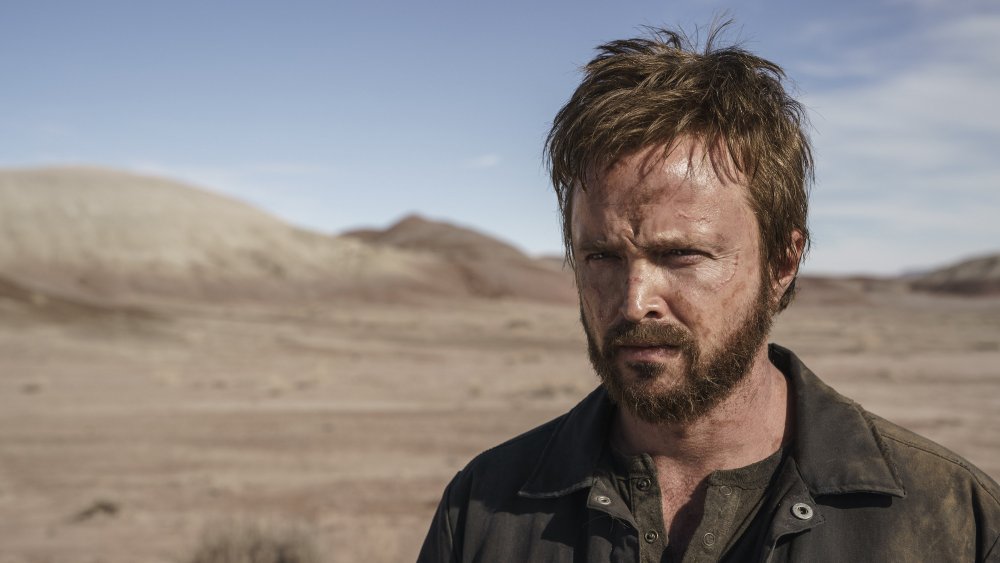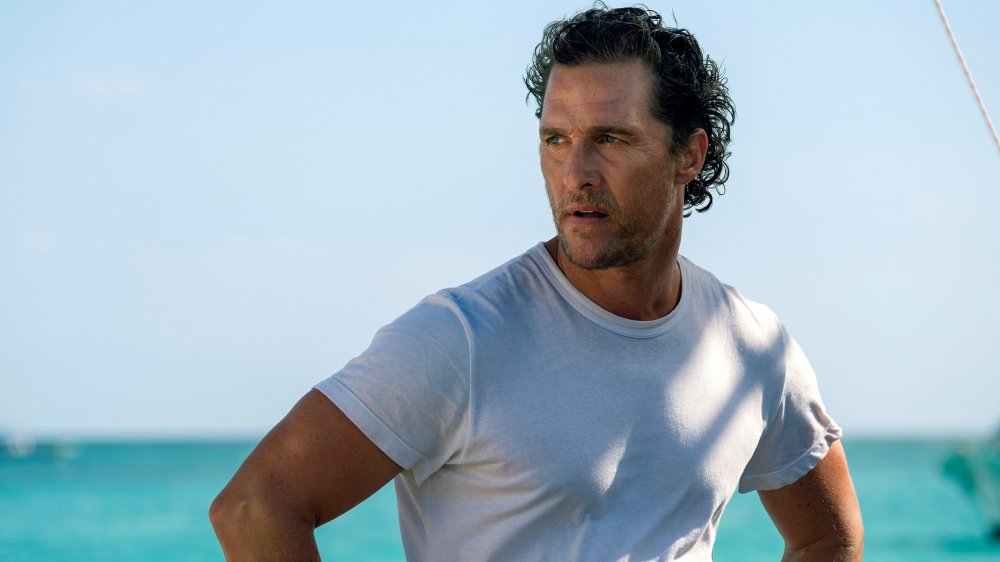The 5 Best And 5 Worst Movie Performances Of 2019
With acting, like any art form, quality is largely subjective. Still, there are times when a performer's work in a role is so utterly impressive that it's hard to argue against it — and times when, for whatever reason, an actor fails to bring a character to life. That's how we have awards shows dedicated to showcasing some of the best and worst movie acting every year.
That being said, there's more to the best acting and worst acting of the year than the Academy Awards and the Golden Raspberry Awards would have you believe. For every Oscar-bait movie released in November and every schlockfest dropped in January, there are countless other films featuring great and terrible acting every year. Of course, all those choices can make it difficult to keep track of what's actually come out this year, let alone what's been the best and worst when it comes to your favorite actors and actresses.
With all that in mind, we've assembled a comprehensive list of the best and worst film performances of 2019. From Lupita Nyong'o's bravura double performance in Us to John Travolta overacting in the worst way in The Fanatic, here's a look back at the highest highs and lowest lows of the year in movie acting.
Best: Lupita Nyong'o is twice as good as anyone else in Us
In Us, Jordan Peele's directorial follow-up to 2017's Get Out, Lupita Nyong'o gets the rare opportunity for an actress to put in two Oscar-worthy performances in one film. The movie introduces audiences to Adelaide (Nyong'o), her husband, and their two children — who are soon attacked by doppelgängers of themselves wearing red suits and carrying scissors. These "Tethered" versions of the family have been hidden away underground while their counterparts were living the sweet life, and they're ready for some bloody reparations.
As Adelaide, Nyong'o is anxious and twitchy, with her emotions building throughout the film as she tries to protect her family. As Adelaide's counterpart Red, Nyong'o is all balletic grace and danger, with such an unsettling presence that you almost want to flinch when she appears onscreen. Together, Nyong'o plays the full spectrum of emotions between two identical characters that never once leaves the viewer confused about who's who. It's an absolutely unshakeable pair of performances that carries the film and only becomes more complex and impressive on a rewatch. In Us, Nyong'o's shown exactly how powerfully charismatic a performer she can be, and we're incredibly excited to see what she does next.
Worst: Jessica Chastain is barely awake in Dark Phoenix
A movie doesn't have to be good to pull great performances from talented actors. That said, a movie's poor quality can sometimes explain how even undeniably great talents can deliver some snooze-worthy performances. Case in point: Jessica Chastain in Dark Phoenix. Chastain's proven that she can inject pathos and emotion into characters with only a few scenes, which would seem to make her a perfect fit for the otherworldly alien Vuk as it tries to bring Jean Grey (Sophie Turner) over to the dark side in Dark Phoenix.
Unfortunately, while the third-act climax and script can be blamed on behind-the-scenes drama, that doesn't excuse how boring her performance in the film is. James McAvoy and Michael Fassbender still manage to show off some brief sparks as Charles Xavier and Magneto, respectively, so it's not as if the movie precludes the possibility of a good performance in a less-than-gratifying role. As Vuk, Chastain should be strange and seductive, an alluring contrast to the men in Jean's life that are trying to control her. Instead, Chastain just seems bored, delivering dialogue as if she's reading the script for the first time.
Best: Florence Pugh is the queen in Midsommar
As difficult as it can be to convincingly play over-the-top maniacs and scream queens, giving a largely internal performance that can still connect with audiences is leagues more difficult. That's the task set to Florence Pugh in Midsommar, Ari Aster's follow-up to 2018's absurdly terrifying Hereditary. Pugh plays Dani as reserved, introverted, and maybe even a little shell-shocked at the world around her. Considering that Dani's family died in a mysterious murder-suicide within the opening moments of the film, she's got a pretty good reason to be a bit withdrawn.
That's before she gets a last-minute guilt invite to her boyfriend's vacation to a pagan festival that involves psychedelic drugs, ritualistic murder, and an exceptionally vicious dance contest. A lesser talent might have played Dani's grief and probable PTSD like a boiling kettle that slowly explodes; instead, Pugh shows a more naturalistic depiction of grief. She's looking for comfort from her no-good boyfriend, wrestling with the complicated feelings of knowing that she's on a trip where she wasn't really wanted, and trying to stay on top of her emotions while taking shrooms. When her grief finally explodes out of her in a ritual of shared pain and screaming, it takes your breath away.
Worst: John Travolta isn't believable in The Fanatic
At this point, John Travolta's been in so many poorly-received and artless films that we're starting to wonder whether the actor was replaced by a less-talented doppelgänger following Pulp Fiction. If his starring role in 2018's mega-flop Gotti wasn't bad enough, he delivered another stinker in 2019's The Fanatic. The film follows an autistic man named Moose (played by Travolta) who becomes obsessed with a horror film actor. Just like Misery, that obsession soon curdles into an obsessive hate, which leads to Moose stalking and threatening his favorite star.
Even if you could get past the offensive stereotypes that Travolta uses as shorthand to communicate that Moose isn't neurotypical, the actor just can't handle playing a character that needs to be both sympathetic and sociopathic at different points in the film. In an incredibly savage review, Katie Rife at The AV Club wrote, "Travolta's performance is constructed entirely out of loud printed shirts and acting tics lifted from a community-theater production of Of Mice And Men." Maybe Travolta just needs one good film to get back on top, but The Fanatic definitely isn't it — and his performance didn't help.
Best: Brad Pitt doesn't need a voiceover in Ad Astra
Like Blade Runner, another science fiction film with a powerfully ambiguous lead performance and a burdensome voiceover attached to the theatrical version, Ad Astra feels like a film destined to become a cult classic in the coming decades. While the film has a script heavy with biblical allusions and a series of impressive visual set pieces, the core of Ad Astra depends on Brad Pitt giving one of the most nuanced performances of his career. As Roy McBride, Pitt is a son in search of his father. Not just in a metaphorical way, either; he's literally tasked by SpaceCom to head out to Neptune to search for his dad in order to stop a series of power surges that threatens the entire solar system. As mentioned earlier, Pitt's performance is accompanied (and nearly strangled by) a long-running internal narration as artless and unnecessary as the one in Blade Runner. Even with that handicap, Pitt shines. He delivers every ounce of nuance and backstory that the narration makes painfully obvious with only a few clenches of the jaw or far-away look. It's the kind of film you could watch on mute and get nearly everything you need just from Pitt's subtle expressions.
Worst: Bruce Willis can barely hold back a yawn in Glass
M. Night Shyamalan career has had more twists and turns than an actual Shyamalan movie. From his mainstream breakout hit The Sixth Sense to the nearly universally panned Lady in the Water to his rise back to a director to watch in 2016's Split, the writer-director has had his share of ups and downs. Still, even when he was at his most down-and-out, you could still expect to see fans praising 2000's Unbreakable, a superhero origin story before the genre became the moneymaker it is today.
Shyamalan's film follows David Dunn (Bruce Willis), a man who gradually realizes that he's basically invulnerable. Spurred by a comic book-obsessed man named Elijah Price (Samuel Jackson), Dunn becomes a vigilante before discovering that Elijah is the supervillain to Dunn's superhero. The film ends on an ambiguous note that seemed like it would never be resolved... until Dunn made a cameo at the end of 2017's Split, revealing that the two films took place in the same universe. That set up 2019's Glass, a film that seemed to promise the long-awaited sequel to Unbreakable.
The good news for fans is that it came out. The bad news is that the film itself is largely terrible, squandering the promise of Unbreakable's final moments. Glass has plenty wrong with it, but Willis' poor performance would rank high on the list. In Unbreakable, Willis played Dunn with a quiet melancholy in a reserved, almost deadpan performance. It's a fine line to tread as an actor, and in Glass, Willis misses the mark entirely. What was an internal, carefully-calibrated sadness has become a boredom so vacuous that Willis was barely mentioned in reviews of the film, despite playing one of the most important roles.
Best: Joaquin Phoenix's performance is no joke in Joker
Whether you loved the movie or hated it, there's no denying that Joker wouldn't work without Joaquin Phoenix's bizarrely effective performance. Possibly one of the best actors of his generation, Phoenix has undeniably proved that he's got the skills to back up his acclaim in movies like The Master, Her, and Walk the Line. That practice seems to have given him the confidence to tackle a role like the Joker.
While the critical response to the film has been somewhat mixed, positive and negative reviews alike have taken the time to praise Phoenix's performance. In a largely negative review for Slate, Dana Stevens writes, "the degree of investment [Phoenix] brings to the role is almost comically in excess of the character's complexity as written," adding that Phoenix is "a technical powerhouse of an actor playing a part he could do blindfolded." In a positive review for the Toronto Star, Peter Howell writes, "If you feel anything for Phoenix's damaged title character, it's because of the actor's superb performance, which graphically expresses the toll that untreated mental illness exacts upon individuals and society." There's no getting around that Phoenix delivered one of the best performances of the year.
Worst: Keean Johnson is robotic in Alita: Battle Angel
When trailers first dropped for the long-awaited Battle Angel: Alita adaptation, most of the response focused around the CGI-enhanced eyes of Rosa Salazar's eponymous cyborg protagonist. As it turns out, Salazar's performance was one of the high points of the film, and nearly unanimously praised by reviewers even in the harshest reviews. One actor who didn't fare quite so well was Keean Johnson, who played Alita's love interest, Hugo. Stephen Dalton, writing for the Hollywood Reporter, called Johnson a "charisma vacuum of white-bread boy-band blandness." Richard Roeper over at the Chicago Sun-Times went even farther, calling Johnson "boy-band cute but bland," and adding, "Alita's blind devotion to this narcissistic idiot is one of the many inconsistencies in the screenplay." It's not a good thing when you're playing opposite CGI cyborgs and purposefully inhuman and robotic characters and critics still manage to peg you as the least charismatic presence onscreen.
Best: Aaron Paul is driven in El Camino
Over the course of five seasons, Aaron Paul's eternally hard-luck addict Jesse Pinkman was basically the moral center of Breaking Bad. Even in a show beloved for incredible performances, jaw-dropping cinematography, and beautifully efficient pacing, Paul's performance throughout was a standout. That's partly why it was so mystifying that he didn't become a major star after the show's end. Besides leading roles in 2014's Need For Speed and the prestige television show The Path, Paul's largely stuck to cameos and small roles, in between co-creating a tequila brand or voicing perpetual slacker Todd in BoJack Horseman.
El Camino, the film sequel/epilogue to Breaking Bad, shows exactly what Hollywood's been missing by reminding everyone how beautifully Paul can inhabit a role. His performance against acting heavyweights like Robert Forster, Jonathan Banks, and Bryan Cranston showcases how electrifying Paul is as an actor. El Camino serves as basically a 90-minute highlight reel of Paul's career, showing everything he's capable of.
Worst: Matthew McConaughey is out to sea in Serenity
Even the best actors can have misfires, and Matthew McConaughey is no exception. Case in point: the bizarre misfire Serenity , which ranks near the bottom of the actor's career output — and yes, that includes Failure to Launch. The biggest problem, as pointed out by Leah Pickett of the Chicago Reader, is that "McConaughey acts like he's in a prestige drama; his intensity clashes with the pulpy narrative and its illogical contrivances." McConaughey is no stranger to turning aimless caricatures into fully fleshed-out people, but that same instinct seems to have worked against Serenity. Considering the ultimate twist of the movie — a nonsensical plot development which we won't spoil here — it might have been better for McConaughey to play the role with his tongue slightly in cheek rather than commit on the level of his time on True Detective. As Rex Reed at the Observer reported, "At the critics' screening I attended, the audience was reduced to hysterics." Maybe if McConaughey had played the role with a bit more humor, that hysterical laughter could have been the point, rather than an unfortunate side effect of an overly serious film.
